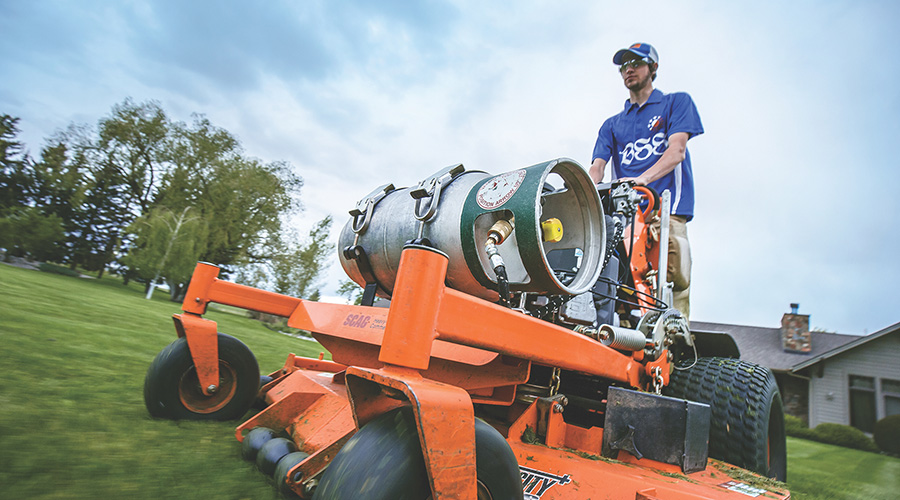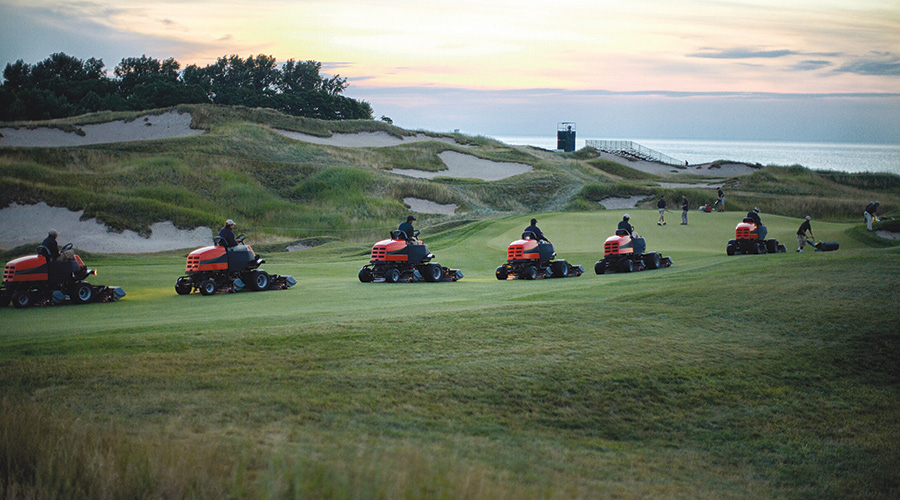Ergonomics Often Hold Key to Operator Comfort and Productivity
Most grounds managers might not realize it, but ergonomics is a major consideration when specifying a new commercial riding mower. When equipment operators are less fatigued and have to strain less to operate equipment, they are more efficient, attentive and productive.
"I don't think people appreciate the contribution of ergonomics to productivity, and I think they especially discount it when they're employing seasonal or temporary workers," says Patsy Penner with The Grasshopper Co. "They may not buy the same machine to put someone else out there mowing as they would if they were mowing themselves, and they miss the point that if you have a machine that is comfortable for you to operate and easy to use, you can do a better job."
Shifting Priorities?
Ergonomics rarely tops the list of features and functions managers traditionally focus on when specifying commercial mowers.
"It's not one of the top three," says Kevin Conry with The Toro Co. "The top three usually are quality of cut, productivity and purchase cost. It's probably going to come in more around number five to number eight. (Customers) see it not as ergonomics, but as operator comfort. And when you start to listen to them, that means, "How good is the seat?"
While managers generally focus on a mower's performance numbers, some are starting to better understand the role of comfort in productivity.
"Efficiency, durability and reliability are their first concerns," says Jamie Palmer with John Deere Commercial Mowing. "But most managers also recognize that providing comfortable working conditions for their employees will lead to greater worker satisfaction and higher retention rates."
In some cases, ergonomics might even be rising on the priority list for some managers.
"I do believe there has been a shift in mentality here," says John Cloutier with Exmark Manufacturing Co. "In the past, the people who made purchasing decisions on investments like mowing products were basing their decisions on costs. It was not uncommon to hear the owner or purchasing person at a maintenance organization indicate that he did not want his people 'being too comfortable' while they are working."
In some cases, managers are coming to understand that the case for ergonomics is tied to employee retention.
"Today, finding and retaining dependable and productive employees is more difficult than ever," Cloutier says. "The quality level of the equipment that is used, including the comfort realized, is an important piece of either recruiting or keep the best workers possible."
Related Topics:













